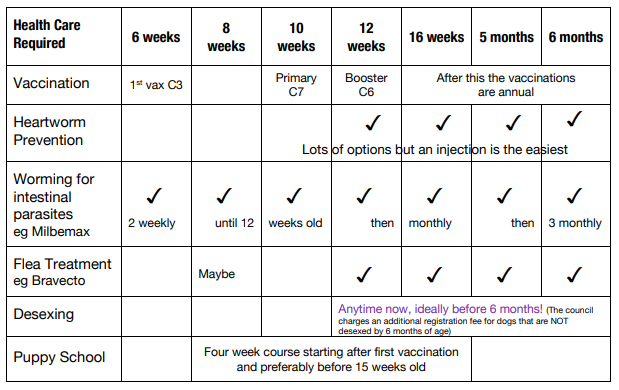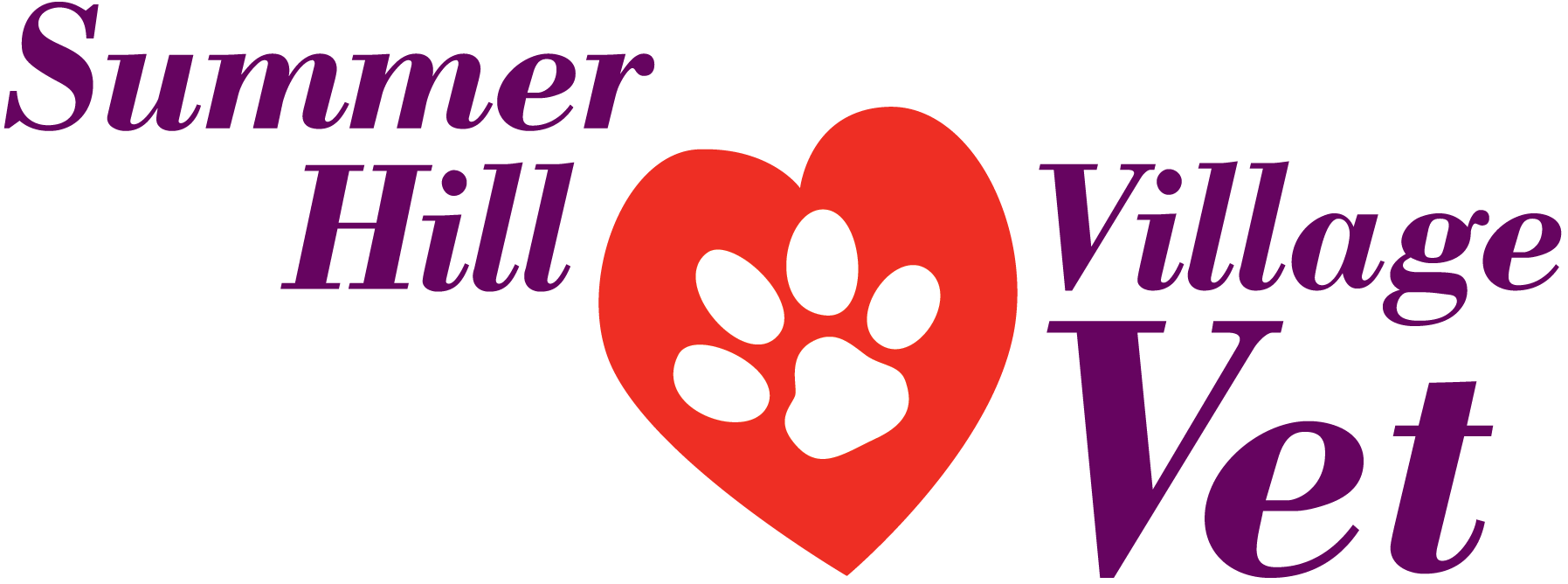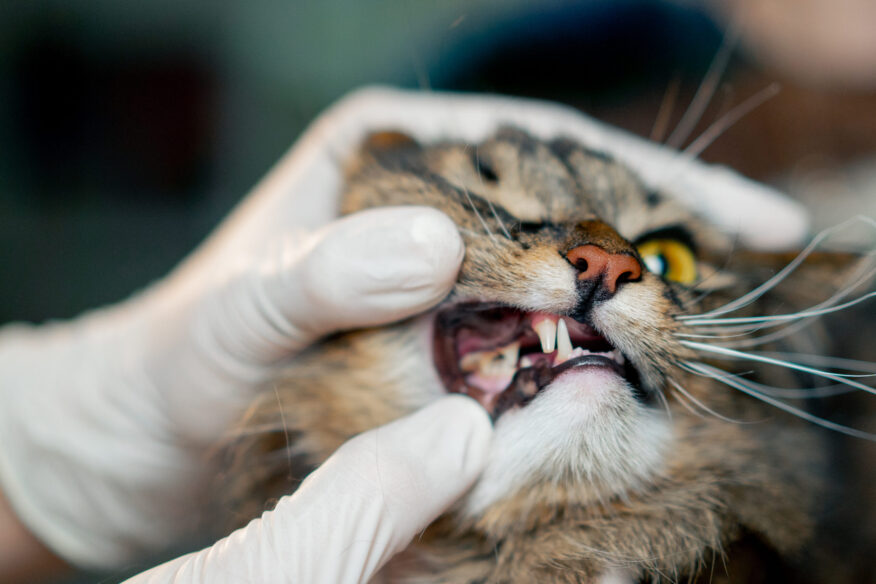For puppies < 6months old
What’s involved for you and your pup:
Appropriate nutrition – we can advise on the right kinds of food for your puppy.
Physical examinations – we’ll do this bit! But we will help you get to know your pet and what is normal for them.
Preventative Health measures and medications – all sorts of diseases and problems are better avoided than treated.
Socialisation and training – we recommend puppy school and other training.
Regular exercise and attention – a dog needs company, fun and activity.
What we do:
Health Check – Examination of the following body systems to make sure they are developing properly: eyes, ears, teeth, skin, heart and lungs, lymph nodes, kidneys, musculo-skeletal system including patellas (knee caps!), testicles in male dogs and nails.
Vaccinations – Given regularly to prevent several serious diseases. We recommend a C7 vaccination.
Preventative medicine – Protection from internal and external parasites.
Insurance:
We recommend you consider Pet insurance as one way of ensuring the best care for your dog throughout their life. Examples include Pet Plan, RSPCA and Guide Dogs Pet Insurance.

Dental Care:
Most dogs require professional dental cleaning not just once or twice in their life but yearly, teeth cleaning chews & special dog food can help but brushing their teeth daily is the best! Ask us how to help your dog get used to this.
Exercise and environmental enrichment:
It’s important not to over exercise young dogs especially if they are a “giant” breed so don’t take them jogging for miles whilst they’re still growing. But do play with them and encourage them to be active rather than sitting around all day. The backyard is a boring place so regular walks not only provide exercise but make life more interesting.
You’ll need to actually teach them to walk on a lead because that doesn’t usually come naturally!
Food can be hidden or placed in Kongs and Treat Balls to make the dog work for their dinner and have more fun.
Do not get a dog if you intend to just leave them in the garden all day and feed them – that’s not enough
Healthcare for your pup and you:
Heartworm prevention, flea control, intestinal worming and vaccinations are all important for the health of your dog but the most appropriate preventative medicine may depend on many factors such as whether your pup will live indoors or outdoors, whether you have other dogs or cats and so on. We will help you choose the right treatments for your situation.
Options for heartworm prevention include back-of-the-neck products such as Revolution or Advocate, chewy beef flavoured blocks or annual injections.
Options for worming and flea-control also include back-of-the-neck products such as Bravecto or Advocate but tablets must still be given for intestinal worms at intervals.
Tick prevention is important if you travel to certain areas.
There are some disease conditions that humans can get from close contact with your dog, and small children especially need to be protected, so we will help you do the right thing.
Some risks and solutions:
Risk – Walking your pup outside before they are fully vaccinated can expose them to serious, even fatal, diseases.
Solution – Follow the vaccination course recommendations
Risk – Not socialising them properly at the right age means you’ve lost your best chance for a well-adjusted, easy-to-care-for and happy dog. Also they can be a risk to other people if they are fearful or aggressive.
Solution – Invest some time now, in puppy school and training, for many years of enjoyable dog companionship.
Risk – Male dogs tend to try to roam more than desexed males increasing their risk of being hit by a car or picked up by the pound. They can develop aggression especially towards other male dogs. Female dogs can become pregnant from 6 months old and when “on heat” attract male dogs and make a mess!
Solution – Surgical desexing. Whilst any anaesthetic carries a risk a young, healthy dog is unlikely to have any problems at all.
We do recommend getting pre-anaesthetic blood tests done to minimise the risks.




